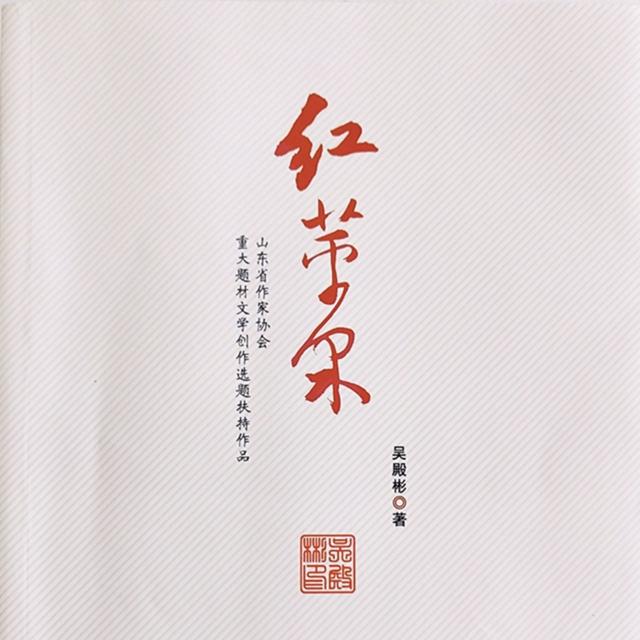Yantai Apple, a long documentary non-fiction written by Wu Dianbin, recounts the 150-year history of apple development in Yantai since American missionaries introduced western apples in 1871.
With a total of 430,000 words, this book that consists of 18 chapters in six parts, was published by People's Daily Publishing House in February this year. The first part is named "The Western Fruit Arrived", which introduces the origin of Yantai apples in modern times. Before the arrival of western apples, Yantai apples, like those in other parts of China, were of an ancient variety with small, fluffy fruit, the taste of which was completely different from that of today's sweet and crisp apples. Since John Livingstone Nevius, an American missionary, successfully introduced western apples in Yantai in 1871, Yantai has become famous as the land of fruits in China until today.
For that, Wu said, "We still should not forget the western apples being the source of Yantai apples, otherwise Yantai apples will be like ungrateful people who forget where they come from.“
In 1871, the American missionary Nevius and his wife Helen came to Yantai by boat. In addition to preaching, he bought more than 10 acres of land for cultivating fruit trees. Nevius learned how to grow fruit trees when he was a child living with his grandfather. After becoming a missionary, he once felt sorry for not having any opportunities to use his gardening skills. At that, Nevius said, “How much God loves me! I learned gardening in my childhood, and it can be used by God today...”
After coming to Shandong, he found that the climate and soil of the province were very similar to that of his hometown New York in the United States. Yantai and New York are both 37 degrees north, but the fruit produced in Yantai was far worse than that in the United States, so he came up with the idea of improving the local fruit trees in Yantai. He transplanted western apples from the United States to the city and then cultivated them by grafting, seedling, and other methods to make them into new varieties with a special fragrance. It turned out that his apple tree cultivation was so successful that the quality of the apples even surpassed that of his hometown, New York. People in neighboring counties began to promote these apples, leading to one of the most important industries in Yantai. This is the "Yantai Apple", which later has become famous both at home and abroad. Yantai became the birthplace of modern apples in China. More than 100 years later, in the 1980s, Red Fuji and other modern high-quality apples were also widely promoted from Yantai to the whole country. The city has played a vital role in the field of the apple industry in modern China.
About the author: Wu Dianbin is a senior journalist, writer, poet, and photographer. He used to be the editor-in-chief of Yantai Science and Technology Information News and deputy editor-in-chief of Yantai Evening News. Now he is currently the cultural consultant of Yantai Apple Association and honorary stationmaster of Yantai Workstation of Central Digital TV Photography Channel. He has won more than 80 prizes in journalism, literature, and photography at or above the provincial level, and has published theoretical works such as Fine News Collection and Writing and a biography Raise This Glass of Wine.
- Translated by Stephen Huang












